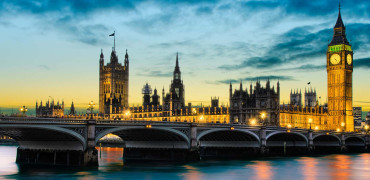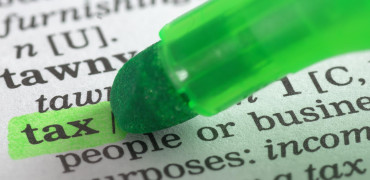Recent global events have disrupted markets and made a mockery of many a business plan. So, Jim McClelland asks: How can a company find certainty in an uncertain world?
Reeling from Covid to conflict, society continues to endure a period of such hostile uncertainty that it borders on chaos.
In the midst of it all, business bats on — fending off everything from fluctuating fortunes to logistical log-jams, one Monday morning at a time.
Nobody, absolutely nobody, factored all of this into a five-year business plan back in 2019.
So, what is the strategy for tomorrow, today?
Is there even any point in future gazing?
The absolute one thing you can be certain of is climate change
Ballot boxes and crystal balls
As it happens, if you are based in the UK, at least one unknown just became known.
The country will go to the polls on July 4th to vote in a General Election. And we are far from alone in this. Remarkably, 2024 is an election year in more than 60 different nations and states, as well as the EU, meaning over half the global population will cast its vote.
So, for literally billions of people worldwide, from India to Namibia, US to UK, a degree of churn is guaranteed, politically speaking, before we reach the end of December.
Whilst you have a vote and a date, however, you still cannot be sure what will follow.
Some elections will be closer than others. Plus, even where you know the likely outcome at the ballot box, politicians seldom stick religiously to their manifesto pledges and campaign promises. There is always plenty left to fathom and forecast, going forward.
Picking post-election policies is effectively a guessing game, not a blueprint for investment and development; plus, the term of office is typically short, often only four years.
Such shifting sands form an unsure foundation for building a business.
Is anything, therefore, actually certain?
Healthy dose of climate reality
Well… There is one thing that is certain: climate change.
Globally, the evidence is everywhere: seas are rising and acidifying, urban smogs are descending, species are migrating, crops are failing and desertification is on the march.
Climate change is simply a scientific fact; and a cause with tragic and costly symptoms.
In the US alone, there were 28 weather and climate disasters in 2023, surpassing the previous record of 22 in 2020. The price tag put on this was a staggering $92.9 billion.
So, whilst the precise impact of the next extreme weather event might be pretty hard to predict, it is coming, regardless, possibly to a place near you, some time very soon.
It is important to understand that this is not doom-mongering, this is climate realism. We know this stuff is happening; we can see it in our gardens, as much as our supply chains.
Climate change is a certainty, now and for the foreseeable future. To accept it as such, therefore, makes perfect sense — to the extent that it is no longer even up for debate. The only alternatives are denial and delay — and we already know both lead to disaster.
What we have then is a very simple two-step strategy:
- Step one: Accept the fact;
- Step two: Act on it.
Climate change is a call to action. And as a business imperative, climate action is is not only essential, but urgent; the time to act is now.
The carbon clock is ticking
It is not just a figure of speech to say that the carbon clock is ticking. The digits are actually rolling over, adding up before our very eyes, counting parts per million in the atmosphere.
This is truly alarming; but also strangely empowering and invigorating from a sustainable business point of view. It might sound crass, but as the saying goes, you should never let a good crisis go to waste. So, start your resilience planning, today, with immediate effect.
Use the scary science to secure buy-in, then get straight down to work.
In terms of what to do, the menu of sustainability options is very long and varied. But, do not let that put you off — try not to suffer analysis paralysis, fight the inertia impulse.
The key is to begin; begin to be better.
You might focus first on ways to streamline your service or futureproof production, track performance, drive efficiency, decarbonise delivery, recycle materials, enhance traceability, boost transparency, diversify recruitment, bolster governance, or support communities.
If help is needed, there are whole toolboxes at your disposal to deploy. Much of this will be familiar territory to many managers and owners, contractors and consultants, so use whatever measures and metrics, standards and software suit your set-up and budget.
In short, whilst the when is non-negotiable, the who, what, where and how is up to you.
The climate emergency is real. So, put it in your business plan, now!
Jim McClelland is a sustainable futurist, editor, journalist and speaker




